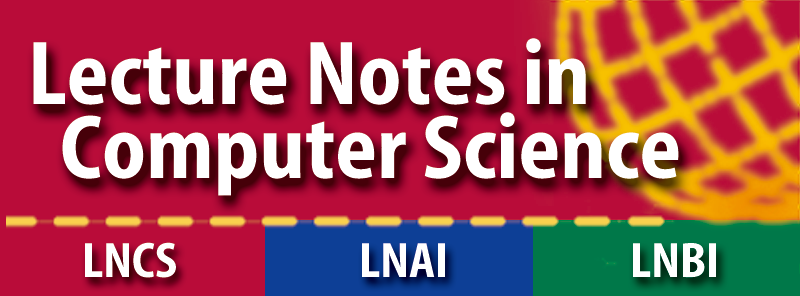Covid Alert
DataMod will be a fully virtual workshop, with no travel involved, and presentation will be given via pre-recorded videos, followed by synchronized online discussions during the scheduled workshop period.
About Datamod 2020
DataMod 2020 aims at bringing together practitioners and researchers from academia, industry and research institutions interested in the combined application of computational modelling methods with data-driven techniques from the areas of knowledge management, data mining and machine learning. Modelling methodologies of interest include automata, agents, Petri nets, process algebras and rewriting systems. Application domains include social systems, ecology, biology, medicine, smart cities, governance, security, education, software engineering, and any other field that deals with complex systems and large amounts of data. Papers can present research results in any of the themes of interest for the symposium as well as application experiences, tools and promising preliminary ideas. Papers dealing with synergistic approaches that integrate modelling and knowledge management/discovery or that exploit knowledge management/discovery to develop/syntesise system models are especially welcome.

DataMod is a satellite event of the International Conference on Information and Knowledge Management - CIKM .

Revised versions of accepted papers will be published after the Symposium in a LNCS volume published by Springer.
Important dates
DataMod will be a fully virtual workshop.
On this basis deadlines for submissions have been updated.
We hope that you all stay safe in those exceptional circumstances.
20 OCTOBER 2020
RESEARCH PAPERS – SHORT AND FULL
- Abstract submission deadline:
14 August 2020 - Paper submission deadline:
21 August 202028 August 2020 - Acceptance notification: 28 September 2020
- Camera ready due: 9 October 2020
PRESENTATION REPORT
- Presentation report deadline: 21 September 2020
- Acceptance notification: 28 September 2020
Topics of interest
Modelling and analysis methodologies include
- Agent-based Methodologies
- Automata-based Methodologies
- Big Data Analytics
- Cellular Automata
- Classification
- Clustering, Segmentation and Profiling
- Conformance Analysis
- Constraint Programming
- Data Mining
- Differential Equations
- Game Theory
- Machine Learning
- Membrane Systems
- Network Theory and Analysis
- Ontologies
- Optimisation Modelling
- Petri Nets
- Process Calculi
- Process Mining
- Rewriting Systems
- Spatio-temporal Data Analysis/Mining
- Statistical Model Checking
- Text Mining
- Topological Data Analysis
Application domains include:
- Biology
- Brain Data and Simulation
- Business Process Management
- Climate Change
- Cybersecurity
- Ecology
- Education
- Environmental Risk Assessment and Management
- Enterprise Architectures
- Epidemiology
- Genetics and Genomics
- Governance
- HCI and Human Behaviour
- Open Source Software Development and Communities
- Pharmacology
- Resilience Engineering
- Safety and Security Risk Assessment
- Social Good
- Social Software Engineering
- Social Systems
- Sustainable Development
- Threat modelling and analysis
- Urban Ecology
- Smart Cities and Smart Lands
Synergistic approaches include:
- 1. Use of modelling methods and notations in a knowledge management/discovery context
- 2. Development and use of common modelling and knowledge management/discovery frameworks to explore and understand complex systems from the application domains of interest
Paper Submission and Publication
Guidelines for submissions:
Papers can take one of the following three forms:
Presentation reports concern recent or ongoing work on relevant topics and ideas, for timely discussion and feedback at the workshop. There is no restriction as for previous/future publication of the contents of a presentation. Typically, a presentation is based on a paper which recently appeared (or which is going to appear) in the proceedings of another recognised conference, or which has not yet been submitted. Presentation reports will receive a lightweight review to establish their relevance for DataMod (see the Call for Presentation Reports).
SUBMISSION
Authors are invited to submit their contributions via Easychair. The Easychair submission webpage is available at Submit on Easychair
All papers should be written in English and prepared using the specific LNCS templates available at Submission Template
Springer’s proceedings LaTeX templates are available in Overleaf.
Each paper will be reviewed by three Program Committee members. Notification and reviews will be communicated via email through the Easychair platform.
PUBLICATION
Accepted papers will be included in the Symposium programme and will appear in the symposium pre-proceedings. Pre-proceedings will be available online before the Symposium. Condition for inclusion in the pre-proceedings is that at least one of the co-authors has registered for the Symposium. Revised versions of accepted papers will be published after the Symposium in a LNCS volume published by Springer. Condition for inclusion in the post-proceedings is that at least one of the co-authors has presented the paper at the Symposium.
POST PROCEEDINGS
The post proceedings of DataMod 2020 will be published with LNCS, Springer. Please read the information below carefully and make sure you submit the following information to us by 4th December 2020.
Authors should consult Springer’s authors’ guidelines and use their proceedings templates, either for LaTeX or for Word, for the preparation of their papers. Springer encourages authors to include their ORCIDs in their papers. In addition, the corresponding author of each paper, acting on behalf of all of the authors of that paper, must complete and sign a Consent-to-Publish form. The corresponding author signing the copyright form should match the corresponding author marked on the paper. Once the files have been sent to Springer, changes relating to the authorship of the papers cannot be made.
Please remember the following paper lengths:
If you are interested in Open Access or Open Choice, please refer to Springer's webpage (https://www.springer.com/gp/computer-science/lncs/open-access-publishing-in-computer-proceedings). The address for the invoice and the CC-BY Consent-to-Publish form would need to be sent at the same time as the files for the publication.
Please prepare:
Follow the following steps:
Didn’t find what your are looking for ?
Keynote Speakers
TITLE: Towards AI-driven Data Analysis and Fabrication
ABSTRACT: IBM plays a significant role in the domain of Data Management tools offering data masking and data fabrication solutions to its customers. I'll present two complementary methods for data modelling and synthetic data fabrication. The first one is a rule-based approach that provides declarative language to model data logic and data rules. Synthetic data is then fabricated based on a solution found by a Constraint Satisfaction Programming (CSP) solver that finds data values satisfying all the defined rules/constraints. The second approach is based on machine-learning methods both for analysis of existing data and for creation of synthetic data. A possible future combination of these two approaches will also be presented and discussed.
BIO: Michael Vinov is the manager of the Security and Data Quality group at the IBM Haifa Research Lab. He has been at IBM for more than 20 years where he has held a variety of development and management positions. He has a rich experience in computer architectures, hardware and software verification, performance optimization, cyber security, data fabrication and leading international projects inside IBM. He has a degree in Computer Engineering from Moscow Institute of Radio Technology and Electronics (MIREA), and M.S. degree in Electrical Engineering from The Technion – Israel Institute of Technology.
Conference Schedule
Attention
Please note that all workshop timeslots are GMT+1, which means the current British/Irish Summer Time.
Full Paper (20 minutes: 15 min presentation + 5 min discussion)
Short Paper (10 minutes: 8 min presentation + 2 min discussion)
Presentation Report (10 minutes: 8 min presentation + 2 min discussion)
Tuesday, October 20
Opening
SESSION CHAIR: Juliana Küster Filipe Bowles, St. Andrews University
Keynote
Towards AI-driven Data Analysis and Fabrication
Coffee break
Machine Learning Topics
SESSION CHAIR: Reshma Munbodh, Brown Alpert Medical School
Synthesis and Pruning as a Dynamic Compression Strategy for Efficient Deep Neural Networks
Exploring graph-based neural networks for automatic brain tumor segmentation
STDI-Net: Spatial-Temporal Network with Dynamic Interval Mapping for Bike Sharing Demand Prediction
Lunch
Simulation-Based Approaches
SESSION CHAIR: Giovanna Broccia, FMT Lab, ISTI-CNR
A Simulation-based Approach for the Behavioural Analysis of Cancer Pathways
Discovering the impact of notifications on social network addiction
A simulation study on demand disruptions and limited resources for healthcare provision
A Formal Model for Emulating the Generation of Human Knowledge in Semantic Memory
Analysis of COVID-19 data with PRISM: preliminary thoughts
A Formal Model of Early Biofilm Formation
Coffee break
Data Mining and Processing Related Approaches
SESSION CHAIR: Mirco Nanni, KDD Lab, ISTI-CNR
Query Rewriting On Path Views Without Integrity Constraints
Evaluating Trace Encoding Methods in Process Mining
Semantic Annotations in Clinical Guidelines
Deriving Performance Measures of Radiation Therapy Workflow from Real-Time Data
Handshape Classification in a Reverse Dictionary of Sign Languages for the Deaf
Discussion
Organization
PROGRAM CO-CHAIRS
- Juliana Bowles, Computer Science, University of St Andrews
- Giovanna Broccia, FMT Lab, ISTI-CNR, Italy
- Mirco Nanni, KDD Lab, ISTI-CNR, Italy
ORGANIZING COMMITEE
- Oana Andrei, University of Glasgow, UK
- Antonio Cerone, Nazarbayev University, Kazakhstan
- Paolo Milazzo, University of Pisa, Italy
STEERING COMMITEE
- Oana Andrei, University of Glasgow, UK
- Antonio Cerone, Nazarbayev University, Kazakhstan
- Vashti Galpin, University of Edinburgh, UK
- Riccardo Guidotti, University of Pisa, Italy
- Marijn Janssen, Delft University of Technology, the Netherlands
- Stan Matwin, University of Ottawa, Canada
- Paolo Milazzo, University of Pisa, Italy
- Anna Monreale, University of Pisa, Italy
- Mirco Nanni, ISTI-CNR, Italy
PROGRAM COMMITEE
- Oana Andrei, University of Glasgow, UK
- Davide Basile, ISTI-CNR, Italy
- Mario Boley, Monash University, Australia
- Juliana Bowles, University of St Andrews, UK (Co-Chair)
- Giovanna Broccia, ISTI-CNR, Italy (Co-Chair)
- Marco Caminati, University of St Andrews, UK
- Antonio Cerone, Nazarbayev University, Kazakhstan
- Ricardo Czekster, University of Newcastle, UK
- Flavio Ferrarotti, SCCH, Austria
- Lars Kotthoff, University of Wyoming, USA
- Giulio Masetti, ISTI-CNR, Italy
- Sotiris Moschoyiannis, University of Surrey, UK
- Paolo Milazzo, University of Pisa, Italy
- Anna Monreale, University of Pisa, Italy
- Reshma Munbodh, Brown University, USA
- Mirco Nanni, ISTI-CNR, Italy (Co-Chair)
- Lucia Nasti, University of Pisa, Italy
- Céline Robardet, INSA Lyon, France



